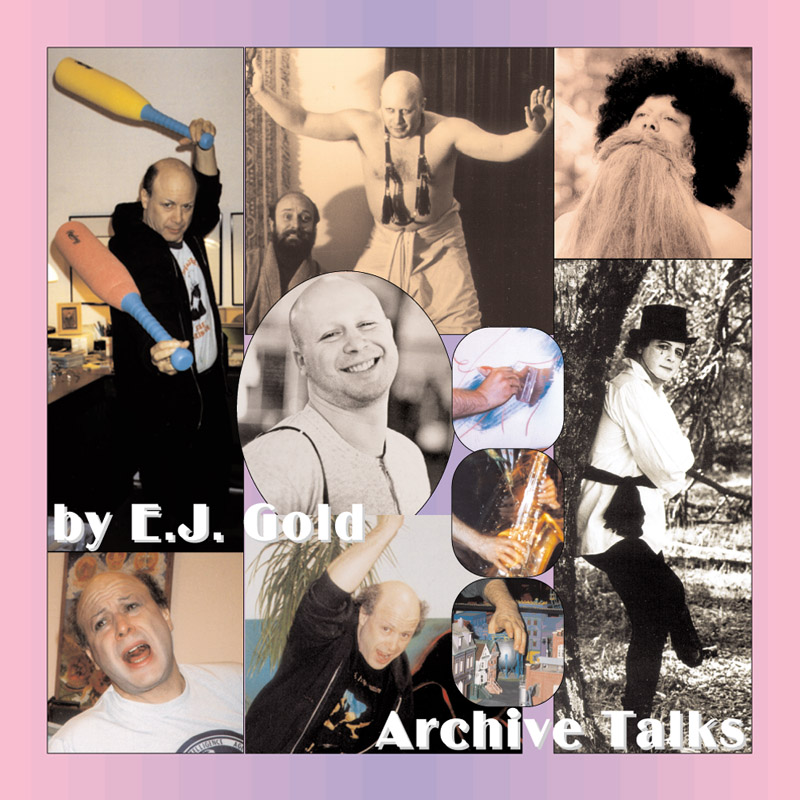

CDT222
The Human Potential Movement
LostTapes; Traditions
This public discussion between Claudio Naranjo and E.J. Gold kept the audience in uproarious laughter, and gave them some thoughts to take home and ponder. Is there such a thing as human potential? Tune in and see.
Synopsis
The talk explores the evolution, rise, and possible decline of the Human Potential Movement, contrasting perspectives on whether transformation can occur collectively or only at an individual level. Speakers discuss the movement's origins, external influences, and its commodification, while questioning whether widespread societal change is possible or even necessary. Emphasis is placed on the tension between personal awakening and social movements, the impact of psychological and spiritual explorations since the 1960s, and the inevitable dilution of transformative practices over time.
Summary
The dialogue centers on the history and trajectory of the Human Potential Movement, situating it within broader psychological and societal shifts. The discussion begins with an attempt to define the relationship between human potential movements, New Age philosophies, and humanistic psychology, proposing that psychology has become the "science of the age."
Tracing the movement’s phases, the conversation identifies the 1960s as a time of blossoming, the 1970s as institutionalization, and the 1980s as a period of stagnation or decline, as commercialization and bureaucratization replace initial revolutionary ideals. The symbolic cycles of rise and fall, as framed in transformational work, serve as a lens to examine not only movements like Esalen and Gestalt therapy but also deeper existential and psychological themes.
Skepticism is expressed regarding the idea of collective movements leading to true transformation, asserting that real change must be personal and inward. The speakers question whether transformation is unique to certain times and places or if it is an ever-present dynamic accessible only to a few. The commercialization of the movement is critiqued, with references to how spiritual and transformational enthusiasm can dilute into entertainment, escapism, or institutionalized dogma.
The dialogue culminates in an inquiry into contemporary needs: Is the movement failing, evolving, or merely revealing its original limitations? The importance of attention, presence, and engagement rather than passive consumption of transformational narratives remains a central theme. By the end, experiential exercises in meditation and presence underscore an approach that emphasizes direct experience over theoretical discussion, inviting participants to cultivate active awareness in human interactions.
Keywords / Key Phrases
- Human Potential Movement
- New Age vs. Humanistic Psychology
- Zeitgeist & the Age of Psychology
- Blooming of Freud’s Tree
- Therapeutic & Spiritual Tyranny
- Institutionalization of Revolution
- Messiah Complex in Transformation
- Information vs. Transformation
- Democratization of Psychotherapy
- Awareness Continuum
- Beyond Altered States
- Meditation in Relationship
- Embodied Spirituality
- Social Ego Collapse
- Post-Illuminative Inflation
- Commercialization of Transformation
- Peak Experience vs. Integration
- Self-Help Movement’s Role
- Breaking the Meditative Taboo
- Psychological Theater of Awareness
Graphic Prompt
A surreal depiction of the cycles of transformation: a massive, ancient tree with roots winding into forgotten scrolls, branches sprouting digital screens and meditation beads, while figures in silhouette walk through glowing doorways, symbolizing phases of psychological evolution. The background shifts from the rising sun to a cosmic void, embodying the tension between awakening and dissolution. Misty layers of color (deep purples, golds, and soft blues) enhance the mystical atmosphere, blending elements of mysticism and intellectualism with a touch of decay. The setting should feel ephemeral yet profound—a threshold between the known and the unknown.



